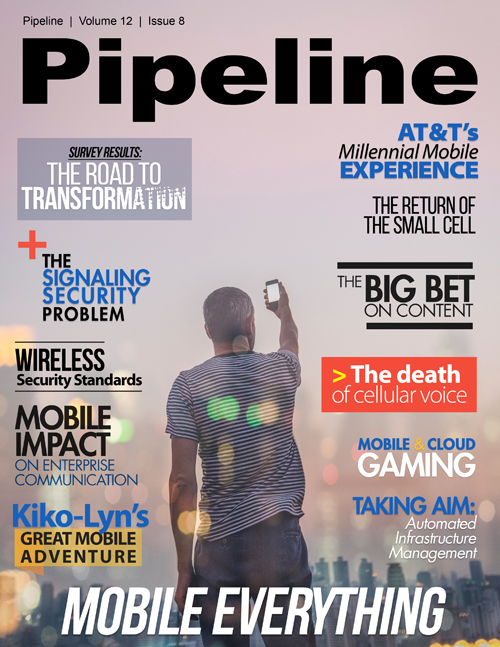Monthly News Digest - February 2016
By: Jim Schakenbach

The first month of 2016 was an active one for a variety of telecom issues, including Wi-Fi, security, and corporate acquisitions. It’s no surprise that network technology continues to evolve and the FCC was busy addressing a number of issues regarding infrastructure and service. Let’s start with Wi-Fi.
Wi-Fi changes for the better –
and maybe worse
Cisco got its day in court and won after Texas-based Commil USA had brought suit against the network communications technology giant, claiming it infringed upon a Commil USA patent that enabled wireless signals to be spread over a large area where multiple access points are needed. A federal court decided that Cisco did not infringe upon the patent and reversed a near $64 million judgment against Cisco after a long-running patent dispute between the two companies.
While Cisco was found not liable for patent infringement, there is some concern that broadband operators may be infringing upon the privacy of home Wi-Fi router users. A new study from Juniper Research predicts that at least one in three home routers will be used as public Wi-Fi hotspots by 2017 as a low-cost way of rapidly expanding domestic Wi-Fi coverage. However, the study indicated that service providers may not be making router owners aware that they are running public traffic through their private equipment.
Speaking of alternative ways to provide public Wi-Fi access, LinkNYC has begun rolling out free gigabit Wi_Fi service in New York City, beta-testing a program to turn 7500 NYC phone booths into Wi-Fi hotspots with encrypted secure connectivity through mobile devices. Almost immediately, IT security experts expressed concern that the new program’s lightning-fast, converted Wi-Fi hotspots will attract hackers.
The dark side of telecom service: security and fraud
Most people applaud the freedom and convenience of modern telecommunications service; but issues concerning security and fraud for both consumer and service provider are always lurking in the background (also see: The Signaling Security Problem in this issue of Pipeline).
A new report by international trade organization Mobile Ecosystem Forum (MEF) identifies a number of mobile security threats and reveals that over one third of consumers are avoiding downloading and using more mobile aps because of privacy and security concerns.
But consumers aren’t the only ones with concerns. Another report, this one from Neural Technologies, reveals that telecommunications providers worldwide this year face $300 billion in losses from uncollected revenue as well as internal and external fraud.
There is good news on the fraud and security front, though. In a related survey by the Communications Fraud Control Association, global telecom external fraud losses have actually dropped 18 percent since 2013, totaling just over $38 billion in 2015. The survey cites as a main reason for the decrease in external fraud the increase in collaboration among carriers in more effectively identifying and stopping fraudulent activity.
A new technology announcement by global information services provider Experian may help in the effort to reduce fraud. The company has introduced a batch phone verification product that supports compliance with the Telephone Consumer Protection Act (TCPA), distinguishes phone type, and validates phone information in real time with over 4500 carriers.
Apparently fraud cuts both ways. Canadian mobile services provider Telus was found guilty of making false or misleading representations about premium text charges it was assessing its subscribers. The company agreed to provide its customers with CAD $7.34 million in rebates as part of a consent agreement the service provider reached with the Competition Bureau, the independent law enforcement agency that ensures Canadian businesses operate in a competitive manner.
An industry in motion: companies bought and sold
It was also a busy month for mergers and acquisitions, and for good reason. New analysis by Bloomberg reveals that wireless competition is fierce and growing, putting a premium on spectrum space. The new report offers a global outlook for 2016 and indicates that wireless carrier competition is heating up in North America. As a result, spectrum auctions are getting more attention than ever. In fact, the value of spectrum in the FCC’s latest auction rose significantly above prior auctions and the secondary market, underscoring the need for more of this resource.
One of the most notable acquisitions was Nokia’s takeover of Alcatel-Lucent, which will now officially disappear, replaced by a single networking giant doing business under the Nokia brand and offering complete mobile and fixed network solutions to take on competitors such as Ericsson and Huawei. The deal has turned Nokia into the number two largest global telecom networking company in the world, second only to Ericsson.
And that wasn’t the only major buyout to make headlines this month. In the U.K., communications service provider BT sealed the deal with EE, the country’s largest mobile operator. The Competition and Markets Authority (CMA) cleared the way for the sale of the joint Orange and Deutsche Telekom mobile unit to BT, saying the acquisition will not significantly harm competition or customers.


















